The release of the Wolbachia bacteria-carrying mosquitos in Khanh Hoa province has given encouraging initial results for controlling dengue fever in the central province.
The raising of Wolbachia bacteria-carrying mosquitos has been implemented since 2006 by the National Institute of Hygiene and Epidemiology, the Pasteur Institute of Nha Trang, and Khanh Hoa Health Department, under the World Mosquito Program in Vietnam. The Program uses the natural and self-sustaining Wolbachia method to control dengue fever, according to Nguyen Thi Yen, technical consultant of the project.
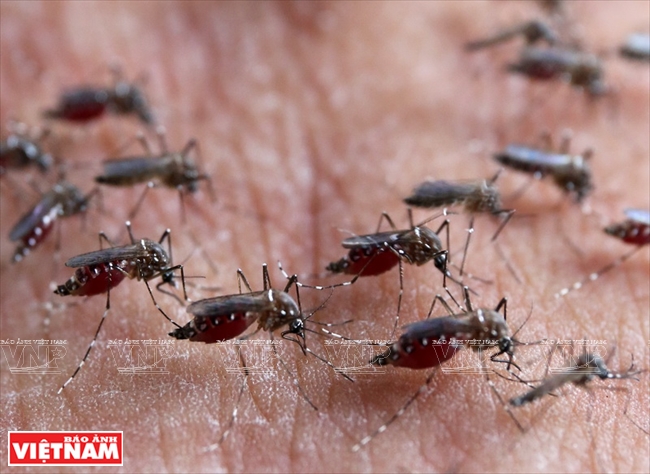
The Wolbachia method has been applied in Australia, Vietnam, Indonesia, Columbia and Brazil
and is being expanded to other countries.
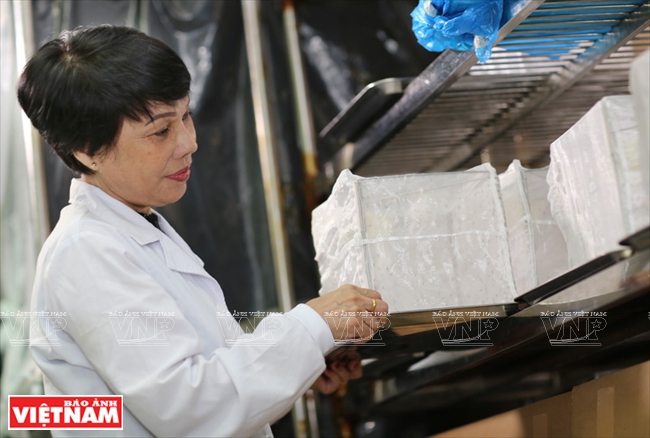
Nguyen Thi Yen has been working as the technical consultant for the project since 2006.
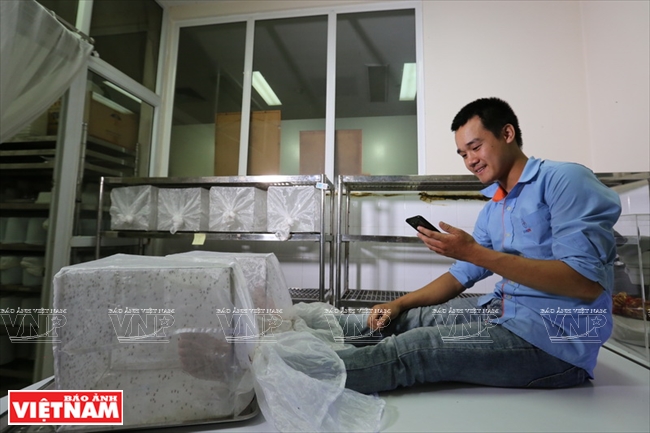
Tran Van Hai, who has been a project volunteer for two years, is getting mosquito bites.
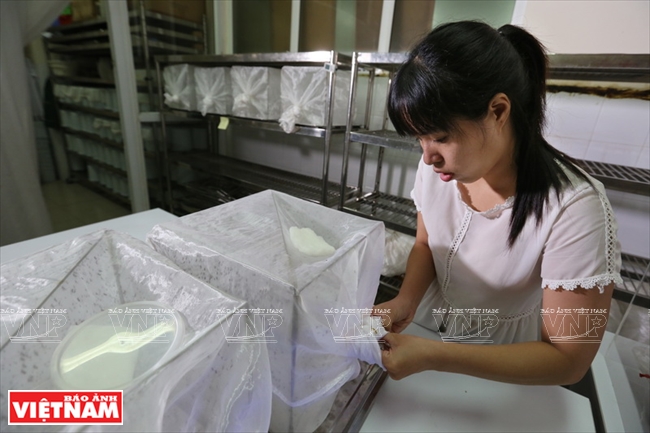
Only healthy volunteers with regular check-up can have the mosquito bites.
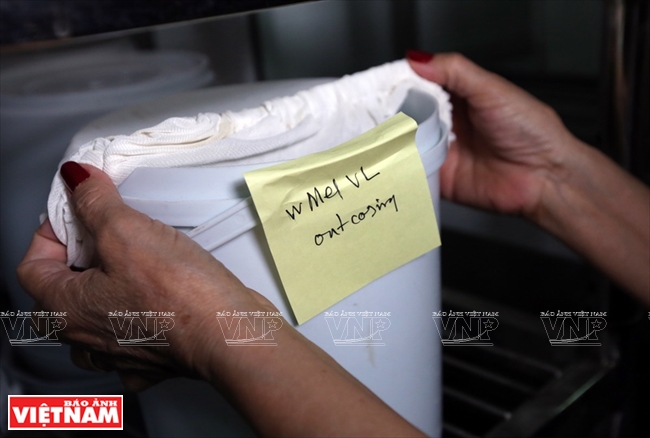
The larvae of Wolbachia bacteria-carrying mosquitos are put into cages.
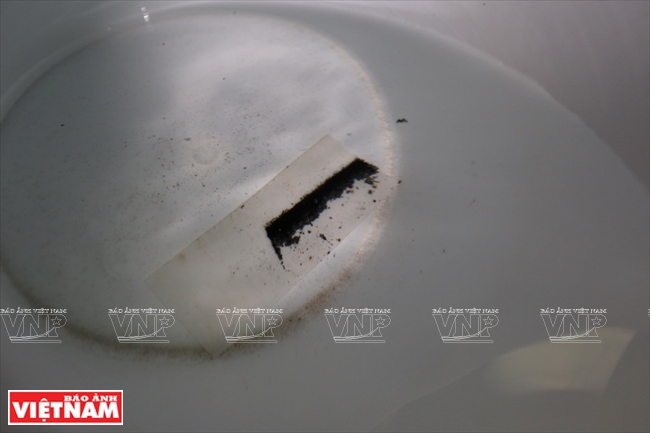
The mosquito larvae in the hatching process.
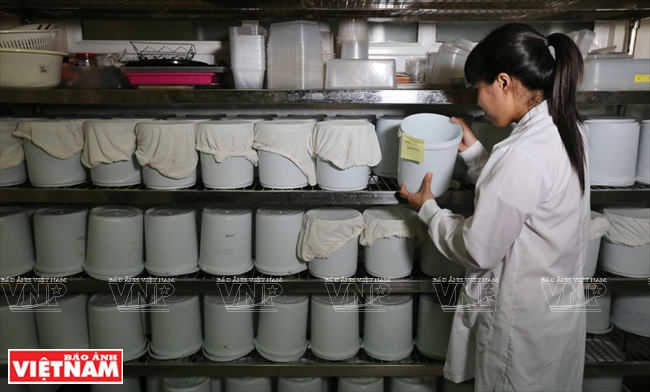
The hatching area at the National Institute of Hygiene and Epidemiology. |
The World Mosquito Program (WMP) is a not-for-profit initiative that works to protect the global community from mosquito-borne diseases such as Zika, Dengue and Chikungunya. Pioneered by Australian researchers, the WMP uses a safe and natural bacterium called Wolbachia to reduce the ability of mosquitos to transmit these viruses.
Wolbachia naturally occurs in up to 60% of all insect species. However, it is not found in the Aedes aegypti mosquito, the primary species responsible for transmitting the Zika, Dengue and Chikungunya viruses. The WMP has successfully transferred Wolbachia from other insects into Aedes aegypti mosquitos. When mosquitos carry Wolbachia, they have a reduced ability to transmit these viruses to people, decreasing the risk of Dengue outbreaks.
Using this method, male and female Aedes aegypti mosquitos carrying Wolbachia are released in a controlled manner in areas where Dengue is endemic. These mosquitos then breed with the wild mosquito population. Over time, the percentage of mosquitos carrying Wolbachia grows until it remains high without the need for further release.
To raise Wolbachia-carrying mosquitos, the project’s staff put mosquito larvae, collected from rainwater wells in the field, into cages until they hatch into mosquitos. After Wolbachia-infected mosquitos have been raised for a certain period, the project’s staff will check the percentage of Wolbachia in the mosquitos before releasing them into the environment.
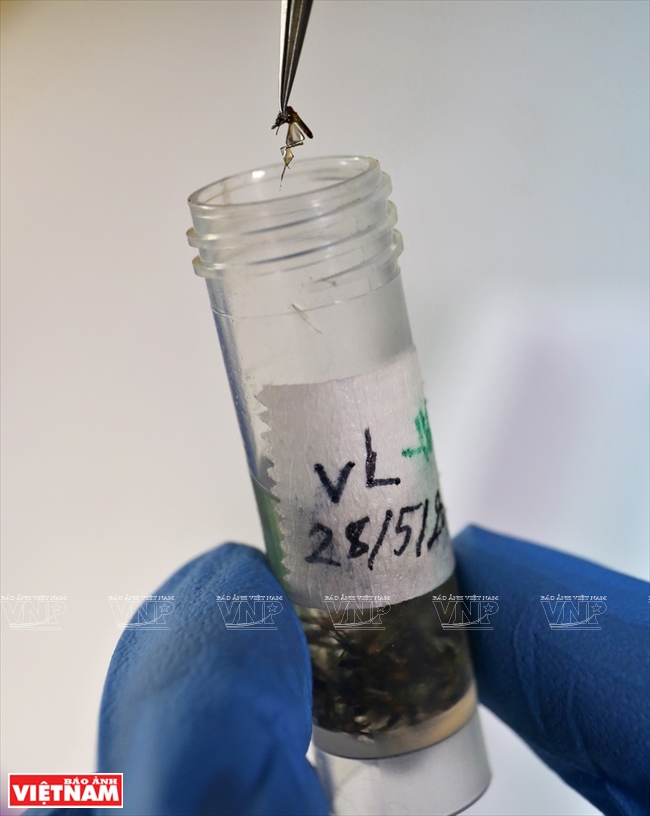
Mosquitos are being tested for the percentage of Wolbachia bacteria.
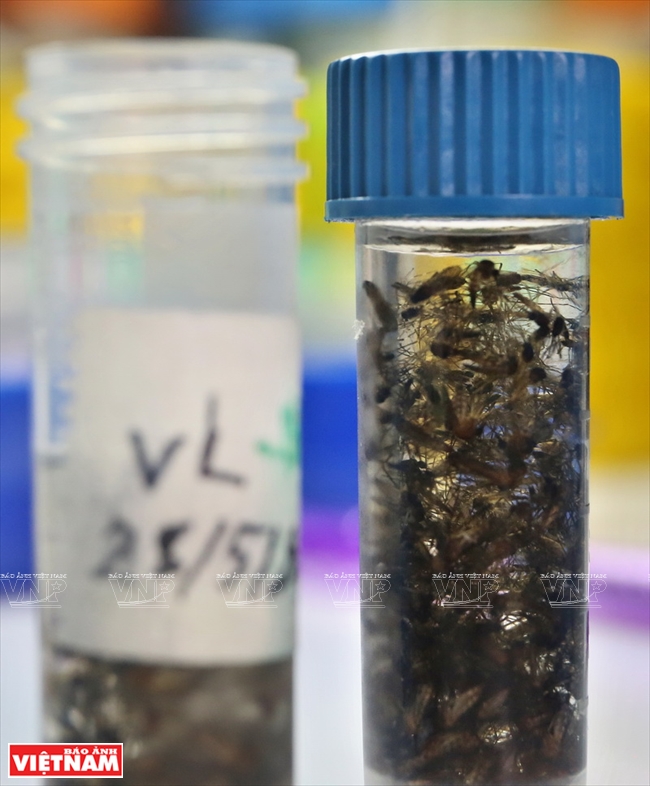
Wolbachia-carrying mosquitos.
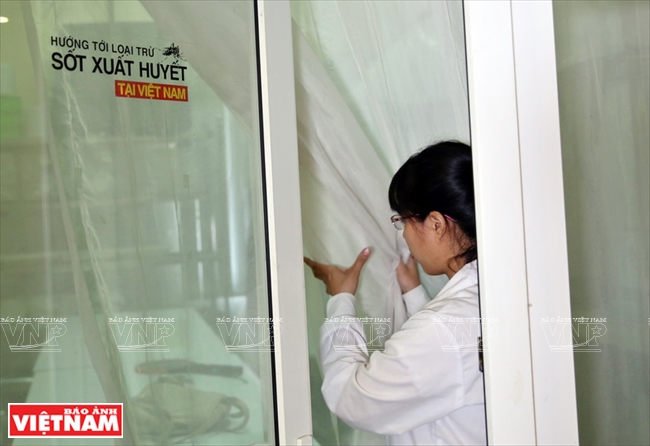
Mosquito raising area.
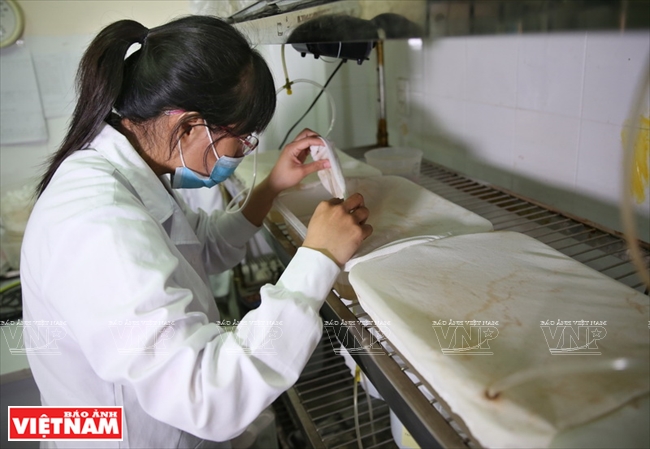
A project worker takes note of the number of new mosquitos in the hatching area.
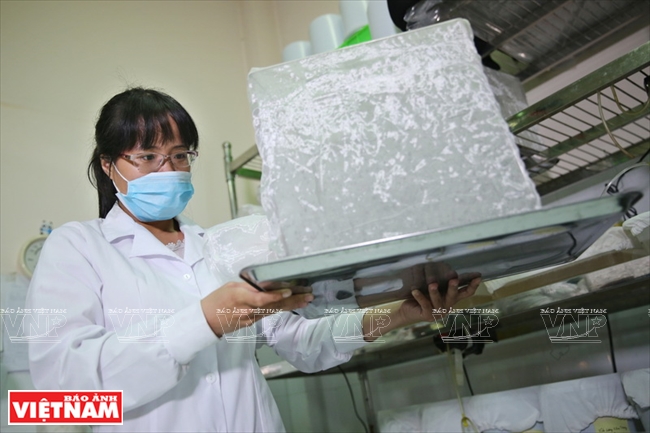
A group of mosquitos are raised in a fabric box for better care and observation.
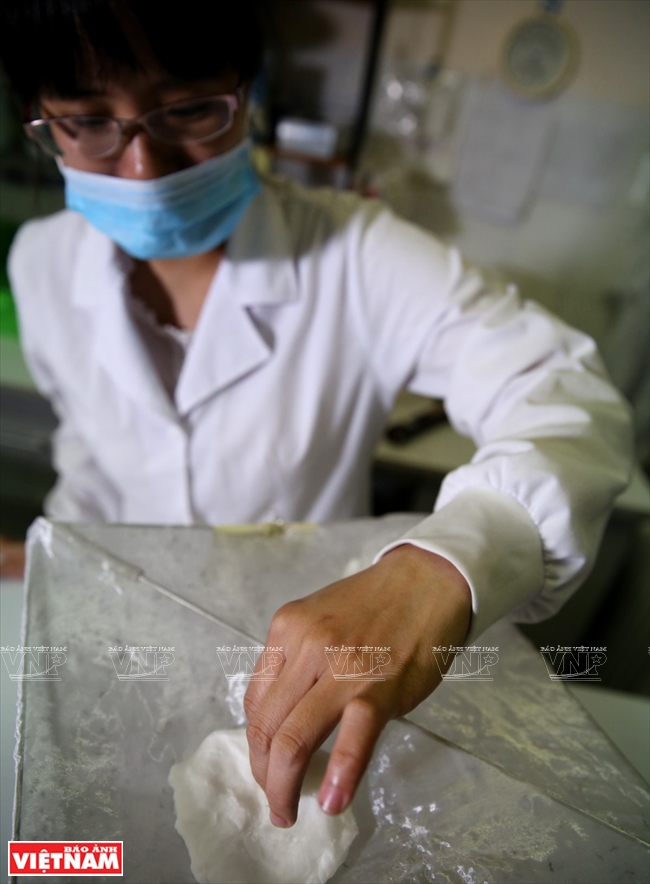
Cotton soaked with sugar is another food for mosquitos.
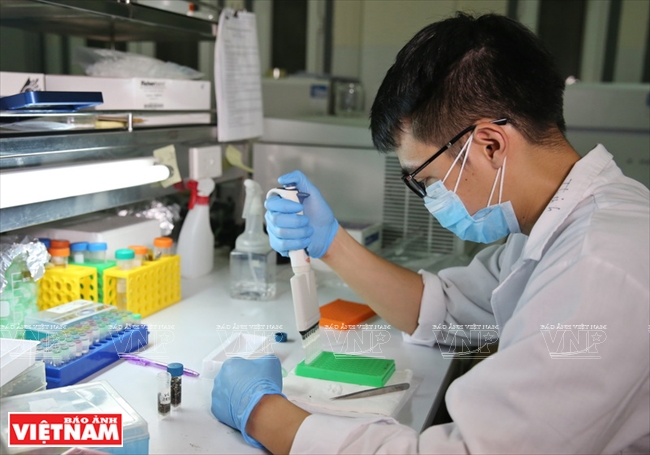
The project’s staff test the rate of Wolbachia bacteria in mosquitos before releasing them into the environment. |
The Wolbachia-infected Aedes aegypti mosquitos were released on Tri Nguyen Island and Vinh Luong commune, Nha Trang in 2013 and 2014. Data shows that the number of dengue fever cases in Nha Trang has remained high in the past several years, yet no outbreaks were reported on the island./.
Story: Ngan Ha – Photos: Tat Son